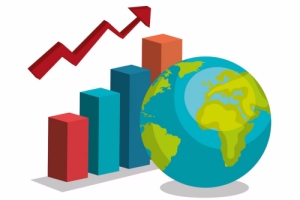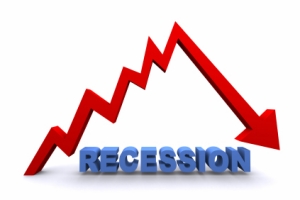What Is the SDR?
Special Drawing Rights, or SDRs, play an important role in providing liquidity to the global economic system.
SDRs were created by the IMF in 1969 to supplement the official reserves of its member countries. SDRs aren’t a currency and they’re not claims on the IMF. But they are an international reserve asset that can be converted into reserve currencies with the help of other member countries. This way, IMF members have access to unconditional liquidity.
SDRs are normally distributed among members through a process called a “General Allocation” – a decision that requires approval by the IMF Board of Governors with at least 85 percent of the total voting power. There have been four so far in the history of the IMF. In a general allocation, the IMF distributes SDRs to member countries in proportion to their quota shares at the IMF, reflecting their relative economic standing in the world economy.
Only certain parties can hold SDRs: the IMF, its member countries, and certain prescribed holders – such as regional central banks, intergovernmental monetary institutions, and some development banks.
The value of the SDR is updated daily and defined by a basket of major currencies used in the world’s most important trading and financial systems: the U.S. dollar, the euro, the Chinese renminbi, the Japanese yen, and the UK pound sterling. The SDRs’ interest rate is adjusted weekly based on the short-term interest rate of government securities of the currencies in the SDR basket.
How do SDRs help provide liquidity to the global economic system?
Members can exchange SDRs for freely usable currencies held by other members. This brings down their SDR holdings but provides them with the currency to either help meet balance of payment needs or add to their own reserves. Members can also use their SDRs to pay for IMF loans or quota increases. Members with strong external positions sometimes use their SDR holdings to contribute to the financing of low-income countries by lending to the Poverty Reduction and Growth Trust. Members can hold on to their allocated SDRs to increase their international reserve buffer. They earn interest on their holdings of SDRs and pay interest on their cumulative allocations at the same SDR interest rate. This means that the interest earned and charged cancel out so long as SDR holdings are equal to their allocated SDRs.
So, holding on to the allocation itself has no cost for the members. If a member exchanges its SDRs for freely usable currencies, it’s SDR holdings and the interest earned on those holdings will fall. If the holding falls below the cumulative allocation, the member has to pay interest on the shortfall. Likewise, if a member provides freely usable currencies in exchange for extra SDRs, it gets paid interest on the surplus of SDR holdings.
Most exchanges of SDRs for currency take place through voluntary trading arrangements, or VTAs. Under these arrangements facilitated by the IMF, members volunteer to buy or sell SDRs. In the rare and unlikely event that a transaction doesn’t go through a VTA, the IMF can call on members with strong external positions to buy SDRs from members with a balance of payment need.
The IMF helps members make the best use of their SDRs, by providing advice on macroeconomic policy, as well as transparency and accountability measures. The IMF’s guiding principle is that any use of SDRs should be consistent with macroeconomic sustainability – but it also provides space for response for crises such as the pandemic. The use of SDRs should not delay changes to macroeconomic policies, reforms, or debt restructurings, where needed.
In August 2021, the IMF’s Board of Governors adopted the largest-ever general allocation of SDRs equivalent to $650 billion. This allocation among 190 member countries was adopted to help meet the long-term global need to supplement reserve assets. Another important objective was to help build confidence and send a powerful signal of a cooperative multilateral response to the Covid-19 crisis, including providing more scope for spending on crisis response in liquidity constrained emerging market and developing economies.
Learn more about SDRs at IMF.org/SDR.















